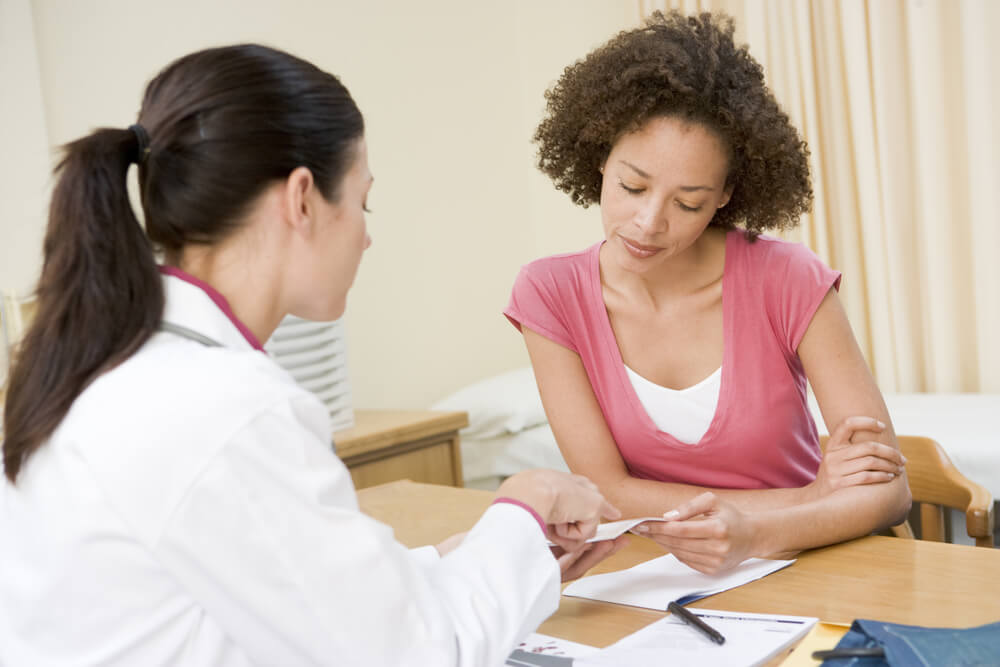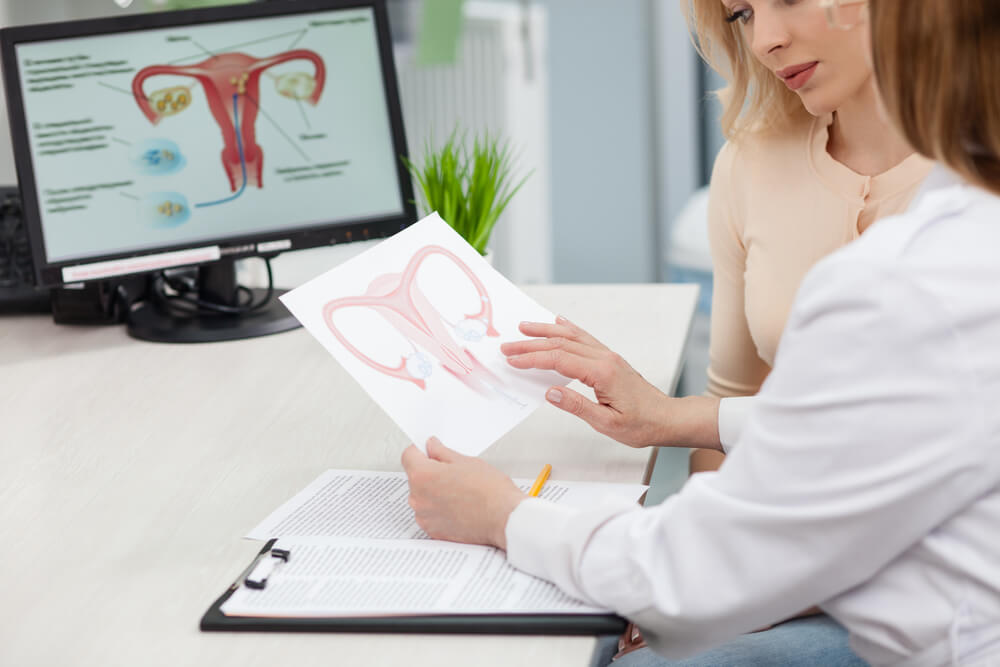A diminished ovarian reserve is a diagnosis that entails that the patient has fewer eggs in the ovaries when compared to other patients their age. This condition is also often referred to as low ovarian reserve or egg count.
To get pregnant, as we all know, both the egg and the sperm are needed. When the egg count is lower, the patient has less chance of having a baby. This is why when we get older; pregnancy possibilities decrease – the number of eggs in the ovaries gets lower.
Having this diagnosis does not mean that there is no way a person can get pregnant; it simply means that getting impregnated might take more time, it might be more complex, and you might also have to consider fertility treatments.
If infertility treatment is something you are interested in and want to find out more about, make sure you visit Women’s Care of Bradenton where the expert staff is prepared to answer all your questions and offer support along the way.
The number of eggs differs during different periods of your life, but the highest count of eggs can be found when you are born (one to two million). Throughout life, you lose the eggs, and by menopause time, women have less than one thousand eggs. The egg quantity, and generally the diagnosis of a diminished ovarian reserve, is given through ovarian reserve testing.
Symptoms of Low Ovarian Reserve
The majority of women do not have any type of symptoms of low ovarian reserve, and they notice it only after months and years of trying to get impregnated. Some women can have a shorter menstrual cycle, while some feel perimenopause symptoms such as hot flashes, dryness of the vagina, and irregular menstrual periods.
Causes of Low Ovarian Reserve

As mentioned before, the number of eggs in our bodies decreases as we get older, so the first and biggest cause of this condition is aging. Sometimes medical experts say that there is no cause, while other times, the following can contribute to the lowering of the number of eggs in the ovaries:
- Genetics (disorders affecting the chromosome X)
- Chemotherapy
- Radiation (treatments of cancers)
- Loss of ovaries
- Surgery on ovaries
- Autoimmune diseases
- Smoking and tobacco usage
Testing for Diminished Ovarian Reserve
As mentioned, to diagnose this condition, medical professionals most often use ovarian reserve testing. In this way, they screen the ovaries and try to check whether the patient has a low ovarian reserve. The doctor estimates how many eggs are still present, but they cannot tell how long you will still be fertile or if you can get pregnant.
This can help medical professionals determine whether you can respond well to medications for ovarian stimulation when it comes to in vitro fertilization or IVF and if you can get pregnant without any kind of treatment, i.e., naturally.
It is important to emphasize that even if you do screen positive for this condition, that does not mean in any way that you cannot get pregnant naturally; it only means that the process will be more complicated than usual.
The testing procedure includes:
- Vaginal ultrasound measures the volume of the ovaries, and the number of follicles in them, i.e., antral follicle count (AFC).
- Blood tests are done so that the doctors can determine the level of AMH (anti-mullerian hormone) and FSH (follicle-stimulating hormone), together with estradiol. These tests also serve to determine the potential response of the patient to ovarian stimulation and medication for fertility.
- Clomiphene citrate challenge is a test where the patient takes fertility medication orally, and the doctors then monitor the response of the body to the medication. This test is not done very often.
Results that indicate that you have a low ovarian reserve are:
- High FSH
- Low AMH levels (which is a sign of lousy egg quality)
- Low AFC
Researchers say that when you experience bad egg quality, there are tricks used to improve that quality, such as managing stress, quitting smoking, a healthy diet, normal body mass index, supplementation, and freezing your eggs for future endeavors.
Treatment for Diminished Ovarian Reserve
Once you are diagnosed with a low egg reserve, there is no way you can start producing more eggs or reversing this diagnosis. The only focus the doctor has after the results come in and you still want to become a mother is to work with you on the treatment plan to reach your goals.
The treatment for diminished ovarian reserve is tailored to your needs and wishes, and the questions include:
- How soon do you want to become pregnant?
- How many children do you want to have?
- How financially stable are you to cover the costs of the treatments?
- How strong is your desire to go through the stressful process of getting pregnant after this diagnosis?
Options are to freeze your eggs, continue trying to get impregnated naturally and start an IVF treatment with your eggs or eggs from a donor.
Your Eggs vs. Donor Eggs

When your doctor warns you that you are at high risk when it comes to low ovarian reserve, one of the ways to react is to freeze your eggs. This process includes taking hormones to begin ovarian stimulation so that they make more eggs than usual. The matured eggs are then taken and frozen, awaiting IVF treatment. Also, you can use your partner’s sperm and create embryos which are then frozen for future plans.
When it comes to donor eggs, if the quality of your eggs or their quantity is not very high, then your chosen doctor may recommend using donor eggs. The process includes using your partner’s sperm to fertilize the donor egg and then transfer it to your uterus. In this case, your child will not inherit your genes, but you will most definitely have a higher chance of conception.
In the donor egg option, freezing the embryo is also a potential solution, where the egg is fertilized by your partner’s sperm (or donor sperm) and then frozen for future IVF plans.
The success of IVF With Low Ovarian Reserve
In case you begin to struggle with natural conception when you are diagnosed with diminished ovarian reserve, medical professionals very often recommend IVF (in vitro fertilization). Many women wonder about the success of IVF treatments when it comes to low ovarian reserve. This varies depending on the issues which caused the diagnosis in the first place, the number of eggs left, and how well your body reacts to fertility treatment.
It is safe to say that exact results and rates are not known and that the success of IVF is lesser the older you get. Your body might not respond well to medication for ovarian stimulation, so be sure to talk to a fertility doctor and ask about all the possible options.
We Are Here!
Our expert team and staff are very aware of the stress and discomfort the diagnosis of diminished ovarian reserve brings, so we have equipped our spaces with the latest technical innovations to help you overcome this issue and begin a successful fertility treatment plan. Trust our experts and come for a consultation, so you can start to plan your future.


